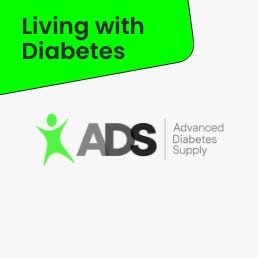
Can a whole egg eaten at breakfast raise my blood cholesterol levels? Well, a couple of decades ago, eggs had a not-so-popular reputation and it was decided that the cholesterol in eggs could clog your arteries. Now, more and more research is proving that one egg per day does not result in increased blood cholesterol levels, nor does it increase the risk of cardiovascular disease in healthy people. The Dietary Guidelines for Americans, 2010 state that consuming less than 300 mg per day of cholesterol can help maintain normal blood cholesterol levels. Plus, consuming less than 200 mg per day can further help individuals at high risk of cardiovascular disease.
One large egg has about 213 mg of cholesterol, all of which is in the yolk. Dietitians recommend individuals include eggs in the diet because of the high nutritional value, are an excellent source of protein, are low in saturated fat, keep you full, and are only 70 to 80 calories each. Nutrients found in eggs are iron, zinc, B vitamins, vitamins A and D, disease-fighting carotenoids, and minerals, including folate which is recommended for pregnant women. It is acceptable to eat one egg a day however when monitoring milligrams (mg) of cholesterol; it is important to limit other sources of cholesterol or animal products for the rest of the day. Try substituting vegetable proteins like dried beans and avoiding high-fat dairy products for that day. Also, egg whites contain no cholesterol or use cholesterol-free egg substitutes.
When buying eggs at the store, you have a wide variety of choices from egg size, to egg color to even improved dietary quality. There are cage-free, free-range, organic eggs to lower-cholesterol eggs because a vegetarian diet and healthier oils are in the chicken feed. Also, there are Omega-3 eggs. The chicken feed is enriched with flaxseed, marine algae, bran, kelp, fish oil or vitamin E to increase the egg’s healthy content of omega-3 fatty acids. No matter what egg you choose, they are delicious and nutritious, easy to prepare, can be inexpensive and great for healthy people at any age.
Here are some ideas for egg recipes:
- Eat a soft boiled egg on a salad, in the morning, or on a sandwich.
- Snack on a hard-boiled egg.
- Make a breakfast burrito with egg whites, veggies, lean turkey sausage, and tomatoes.
- Use a healthy mayonnaise or plain Greek yogurt to make egg salad for your sandwich.
- Try an egg-white omelet for dinner.
- Place scrambled eggs on a whole wheat toasted English muffin.
- Make a healthy egg frittata. Use low-fat cheese and lots of veggies such as spinach and tomatoes.
- Eat scrambled eggs with a delicious tomato and basil bruschetta.
- Make breakfast tacos with scrambled eggs, potatoes, tomatoes, and onions.
